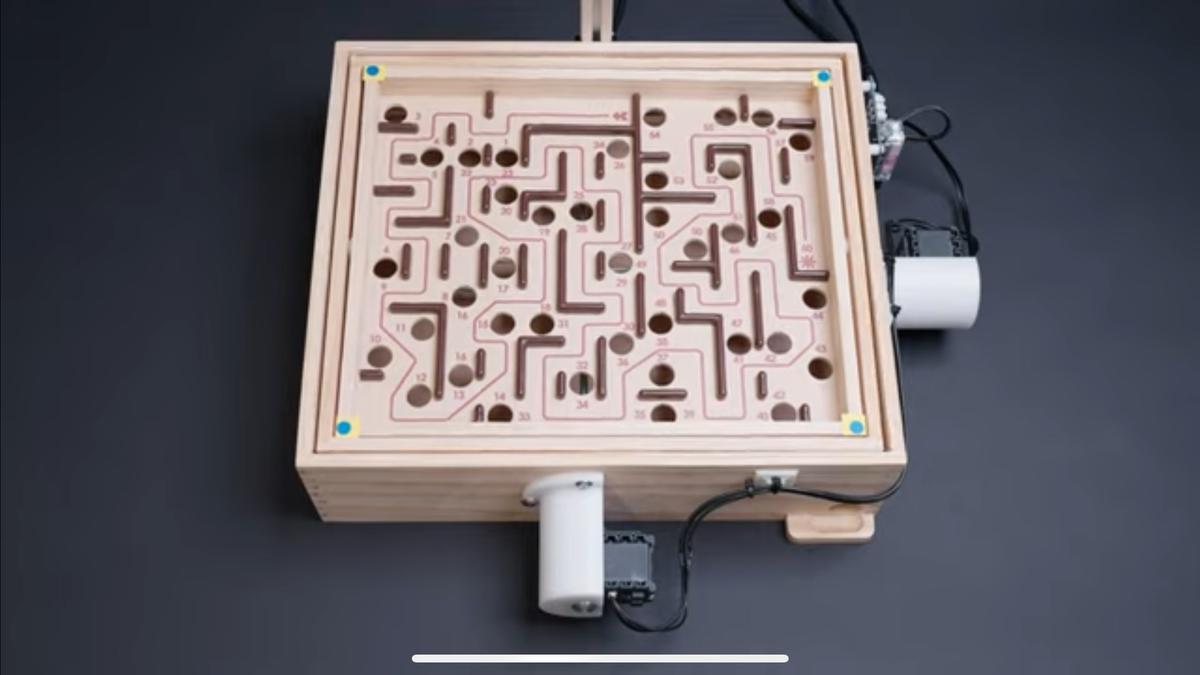
AI beats humans in another game, but this one is not any other board game
The Hindu
AI robot CyberRunner outperforms human players in physical labyrinth game, learning through experience and discovering shortcuts.
Artificial Intelligence (AI) has been blazing a trail in the past several years, beating skilled human players in strategy board games like chess and go. It has also excelled in playing video games and navigating digital three-dimensional mazes. But AI’s motor and spatial skills have seen limited success, except in few scenarios like drone racing.
A team of researchers from Europe’s ETH Zurich University have now demonstrated that AI’s learning capabilities can surpass humans’ in the physical realm too.
The research team, led by Professor Raffaello D’ Andrea and Thomas Bi, a PhD candidate, has built a robot AI using the popular labyrinth marble game to make informed decisions on potentially successfully behaviour by planning for the future.
The labyrinth game is a marble game consisting a maze with walls and holes. The goal of the game is the transport a metal ball from the start to the end by tilting the playing field using two knobs. These two knobs help the player from preventing the ball from falling into any of the holes.
(For top technology news of the day, subscribe to our tech newsletter Today’s Cache)
While the game is straightforward, it requires motor and spatial skills to move the metal object from start to end.
The researchers’ approach towards build this AI system is similar to how humans learns -- through experience. While playing the game, the AI robot, called CyberRunner, observes its own moves and receives rewards based on its performance. This happens with the help of computer vision. A camera looks down at the labyrinth board and tracks the moves.





















 Run 3 Space | Play Space Running Game
Run 3 Space | Play Space Running Game Traffic Jam 3D | Online Racing Game
Traffic Jam 3D | Online Racing Game Duck Hunt | Play Old Classic Game
Duck Hunt | Play Old Classic Game











